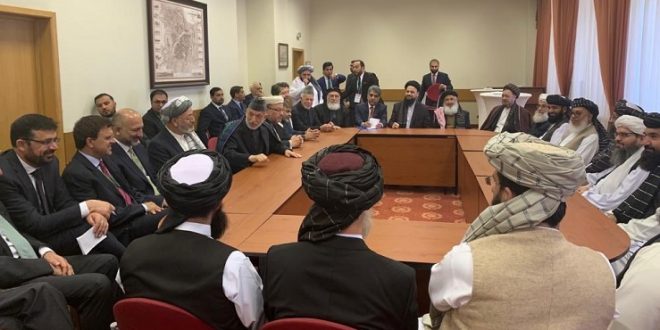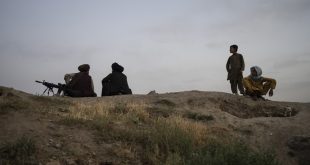AT News
KABUL: Some political experts accuse the government of monopolizing peace negotiations, alleging that the act had hampered the national process.
The analysts said Monday that presidential office emphasizes on peace, but from other hand, offers conditions that means monopoly in the peace efforts because government leaders do not want to consult politicians and even restricts their efforts.
But President Ghani’s office says that government leads peace efforts representing people of Afghanistan, while political leaders lack enough legitimacy and cannot hold talks with the opposition without government.
Ghani in an order limited all peace affairs in the newly-established state ministry for peace.
Ghani’s office also reacted to a recent meeting held by political leaders and said that politicians were not legally authorized to run peace process.
The meeting held Saturday, announced that politicians were busy on a plan that represented all Afghans and would help for gaining peace.
President Ghani’s spokesman said in reaction to the meeting that the unity government was the only legal representative of the people, but political leaders did not know about Ghani’s efforts.
Mohammad Karim Khalili, Chairman of High Peace Council, welcomed Taliban’s plan of violence reduction, calling “a real act of war reduction”.
The government rejected violence reduction, emphasizing on a general cease fire as a precondition for peace talks.
According to political analysts, the government has a 50 per cent share in the peace negotiations, but despite that it doesn’t consult for peace efforts and leads it by its own choice.
They warned that monopoly of the peace negotiations would hinder peace.
Sources close to Taliban say that militants were ready to hold intra-Afghan talks just after signing a peace deal with the United States.
Jalaluddin Shinwari, a former official of Taliban, said the US envoy for Afghan peace Zalmay Khalilzad would meet President Ghani in Kabul to inform him about new progresses of talks with Taliban.
 Afghanistan Times
Afghanistan Times




